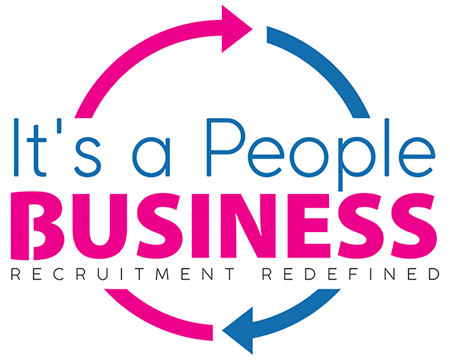
As companies continue to grow and expand, finding the right employees has become increasingly crucial. The traditional screening process of a resume and interview is no longer enough to ensure that a candidate will succeed in a specific role. This is where skills-based assessments come in. By using assessments to evaluate a candidate's abilities and knowledge, employers can make more informed and objective decisions when it comes to hiring.
Read More: Mastering Talent Acquisition: Strategies and Best Practices for Recruiting Top Candidates
Skills-based assessments are designed to measure a candidate's skills and competencies in a specific area, such as technical skills, problem-solving abilities, or critical thinking skills. By incorporating these assessments into the screening process, employers can gain a more comprehensive understanding of a candidate's abilities beyond what is listed on their resume. In addition to providing a more accurate assessment of a candidate's skills, skills-based assessments can also save employers time and money. By identifying the most qualified candidates early in the process, companies can avoid the costly and time-consuming process of interviewing and hiring the wrong candidate.
Reduce bias in the hiring process.
Reduce bias in the hiring process.
Overall, incorporating skills-based assessments in the screening process can lead to more efficient and effective hiring decisions. By evaluating candidates based on their ability to perform the tasks required for the job, employers can ensure they are bringing on board individuals who can hit the ground running and contribute to the success of the organisation. Additionally, skills-based assessments can also help to reduce bias in the hiring process by focusing on objective criteria rather than subjective factors like education or work experience. As such, incorporating these types of assessments can lead to a more diverse and inclusive workplace, benefiting both the employer and the employees.
1. Identifying candidate strengths accurately.
1. Identifying candidate strengths accurately.

One of the most challenging aspects of candidate screening is identifying candidate strengths accurately. To improve this process, companies can use skills-based assessments that measure the candidate's actual skills and abilities. These assessments can be used at different stages of the hiring process, from initial screening to final interviews. By using skills-based assessments, companies can gain a better understanding of the candidate's strengths and weaknesses, which can help them make more informed decisions about whether the candidate is a good fit for the position.
These assessments can also help companies identify candidates who may have the potential to excel in the role but may not have the traditional background or experience typically sought in a candidate. Overall, incorporating skills-based assessments into the screening process is a valuable tool for improving candidate screening and ensuring that the right candidates are selected for the job.
2. Objectivity in the screening process.
2. Objectivity in the screening process.

Improving candidate screening is an essential part of the recruitment process. One way to enhance the screening process is by incorporating skills-based assessments. These assessments can provide a more objective and accurate evaluation of a candidate's abilities, rather than relying solely on their resume or interview performance. Objectivity in the screening process means that factors such as personal biases or prejudices are eliminated, and the candidate is evaluated solely based on their skills and qualifications.
Focus on the most qualified applicants
Focus on the most qualified applicants
This helps to ensure that the best candidate is selected for the job, based on their actual abilities rather than subjective opinions. Skills-based assessments can also help to save time and reduce costs by identifying unsuitable candidates early in the screening process, allowing recruiters to focus on the most qualified applicants. Overall, incorporating skills-based assessments into the screening process can greatly improve the objectivity and effectiveness of candidate selection.
Read More: The Future of Work: Predictions for Online Recruitment in the Next Decade
3. Aligning skills with job requirements.
3. Aligning skills with job requirements.

Aligning skills with job requirements is essential in the candidate screening process, as it allows recruiters to identify the most qualified candidates for a given job. To achieve this, companies can use skills-based assessments that objectively measure candidates' knowledge and abilities related to specific job requirements. By using such assessments, recruiters can ensure that they are evaluating candidates based on their actual skills, rather than relying solely on subjective criteria such as education or work experience. This approach can result in a more accurate and efficient screening process, ultimately leading to improved hiring decisions and better-fit candidates for the job. Incorporating skills-based assessments into the screening process is a key step in improving candidate screening and ensuring that the most qualified candidates are selected for open positions.
4. Minimising bias in hiring decisions.
4. Minimising bias in hiring decisions.
One of the key challenges in improving candidate screening is minimising bias in hiring decisions. Prejudice and unconscious bias can impact the hiring process and lead to a lack of diversity in the workplace. To address this challenge, companies can use skills-based assessments in their screening process. Skills-based assessments help to evaluate candidates based on their abilities and competencies rather than their personal background or characteristics.
Read More: Mastering the Main Stages of Any Recruitment Discussion: A Practical Guide for Employers
Eliminate bias and create a more diverse and inclusive workplace
By focusing on skills and competencies, hiring managers can make objective hiring decisions that are based solely on the candidate's ability to perform the job. This approach can help to eliminate bias and create a more diverse and inclusive workplace. Additionally, using skills-based assessments can help to improve the overall quality of the hiring process, leading to better hiring decisions and increased retention rates.
5. Improving overall candidate evaluation.
5. Improving overall candidate evaluation.

Improving candidate screening is a critical aspect of any successful hiring process. One way to enhance this process is by utilising skills-based assessments in the screening process. Skills-based assessments provide a reliable and objective evaluation of a candidate's abilities and competencies. By using these assessments, organisations can improve the accuracy of their candidate evaluation, and reduce the risk of making hiring mistakes. One specific area where skills-based assessments can improve candidate evaluation is in measuring soft skills. These assessments can help determine how well candidates communicate, collaborate, problem-solve, and adapt to changing situations. By evaluating candidates on these critical soft skills, hiring managers can better predict how well they will perform in the workplace. Overall, incorporating skills-based assessments into the screening process can lead to more informed hiring decisions and ultimately, a stronger workforce.
Conclusion
Conclusion
Skills-based assessments are an effective tool for screening candidates and making informed hiring decisions. They provide a reliable and objective way to evaluate a candidate's abilities and potential job performance, while also minimising bias and subjective decision-making. By incorporating skills-based assessments into your recruitment process, you can identify the most qualified candidates and build a strong team that can meet the demands of your business. As hiring becomes increasingly competitive, utilising skills-based assessments can be a key differentiator in attracting and retaining top talent.
Read More: The Benefits of Working with a Flat Fee Recruiter
Reach out to It's a People.Business for expert guidance and support in implementing these best practices. Our team of recruitment professionals can help you develop a cost-effective and efficient hiring strategy that aligns with your business goals. Contact us today to learn more and take the first step towards building a strong and talented team for your small business.
